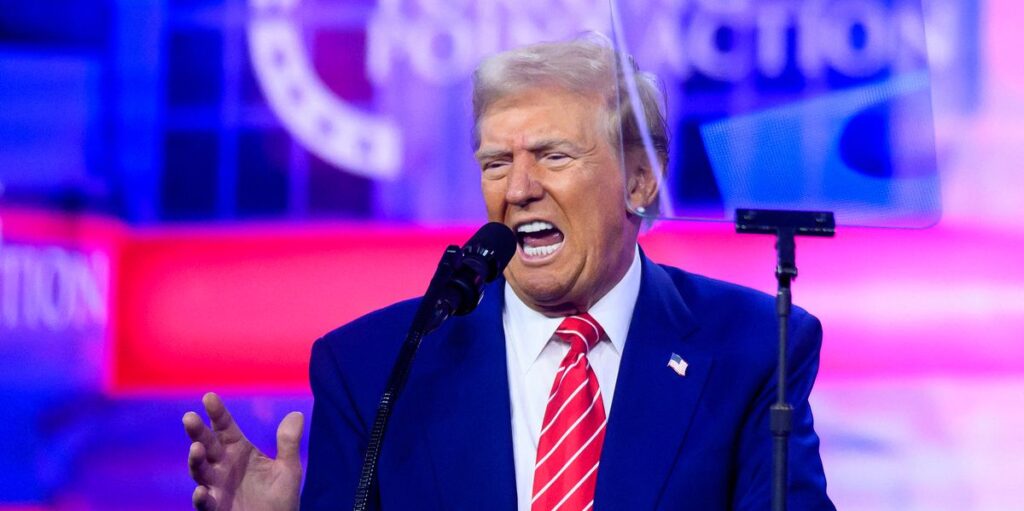In recent developments, President-elect Donald Trump has experienced significant pushback from the Republican Party, highlighting his diminished influence as he enters a lame-duck phase. Despite Trump’s enduring status as the leader of the GOP, evident support for his agenda, including tax cuts for the wealthy and conservative judicial appointments, various actions by Republican figures demonstrate the limits of his command over the party. Notably, two major rejections occurred within a week: Florida Governor Ron DeSantis resisted Trump’s request to place his daughter-in-law, Lara Trump, in a Senate seat, and over thirty House Republicans rejected Trump’s push to include a debt ceiling hike in a government funding bill. These incidents expose the difficulties Trump faces in unilaterally directing GOP actions, signaling challenges for those who might hope for a cohesive implementation of his policy objectives.
Within the GOP’s ranks, there is recognition of Trump’s status as the incoming president, yet Republican senators, including Mike Rounds, have conveyed reservations about some of his demands. Rounds expressed that while party members respect Trump’s position, they are also mindful of political realities and the impracticality of certain requests, such as the debt ceiling hike. Trump’s insistence on including this provision ultimately derailed a crucial funding bill championed by House Speaker Mike Johnson, revealing a lack of alignment within the party over his directives. Moreover, the refusal to support Trump’s ambitions indicates a broader reluctance among Republicans to escalate the national debt at a time when they traditionally advocate for fiscal conservatism.
This internal discord became starkly clear when 38 Republicans voted against the legislation sought by Johnson, showcasing a collective unwillingness to compromise their principles simply because it aligned with Trump’s demands. In a separate skirmish, attempts by Trump to endorse scandal-embroiled Matt Gaetz for the position of attorney general similarly backfired, forcing Gaetz to withdraw amid Senate resistance. This situation demonstrated Trump’s inability to impose his will over legislative decisions and appointments, as even his threats to leverage recess appointments did little to sway Senate Republicans.
Additionally, Trump’s attempts to place his daughter-in-law in the Senate were met with subtle but meaningful resistance from DeSantis, who ultimately allowed her name to be withdrawn from consideration. While Trump remains optimistic about his influence, comments he made at Mar-a-Lago hinted at an acknowledgment of limitations in getting his way with DeSantis. The situation signifies a broader trend where other GOP members are strategically distancing themselves from Trump, with figures like DeSantis aiming to chart their own paths for leadership within the party, particularly as the 2024 election approaches.
Critics within the party also suggest that the power dynamics are shifting away from Trump, leading to speculation about a reduced future influence if he exhibits signs of cognitive decline after taking office. This perception of a “lame duck” status could empower emerging leaders who may see an opportunity to establish themselves within Republican circles. Furthermore, Trump’s messaging now seems to be increasingly challenged by rising GOP figures, with some speculating that others may usurp his prominence if he fails to assert dominance, especially with significant financial backing from influential donors like Elon Musk.
While Trump strives to maintain a grasp on GOP leadership, his diminishing clout raises questions about the sustainability of his political brand. Despite his attempts to dismiss challenges from potential successors or rival figures, Republicans are beginning to look beyond Trump, signaling potential ideological transformations within the party. As the political landscape evolves and competing interests come into play, particularly with figures like Musk gaining ground, Trump’s immediate legacy and influence within the GOP may rest on fragile grounds, prompting an examination of how his leadership will be perceived and acted upon by his party.

